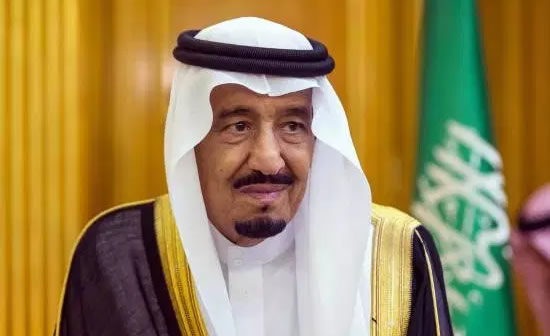Saudi Arabia’s King Salman is currently facing health challenges, including a lung infection that requires him to undergo medical tests, according to a statement from the Royal Court. The announcement from the official Saudi Press Agency indicated that the 88-year-old monarch, who has been on the throne since 2015, will receive medical attention based on the recommendations from royal clinics. The health of the king has been a point of interest and speculation, particularly given his age and the significant role he plays in a nation that stands as the world’s largest crude oil exporter. His son, Mohammed bin Salman, has been acting as the day-to-day ruler since being named crown prince in 2017, further emphasizing the transitional nature of the Saudi leadership.
Despite the sensitivity surrounding the monarch’s health, the Royal Court previously confirmed in May that King Salman was undergoing antibiotic treatment for a lung-related condition after being hospitalized for routine tests. This disclosure was somewhat unusual, as matters of the king’s health are not typically discussed publicly. Notably, after his hospitalization, the palace announced his recovery, signalling that his health had improved. In recent months, the king has been admitted to the hospital for various reasons, highlighting a pattern of healthcare events that include routine examinations. These admissions often arise from measures taken to monitor his health due to his age.
King Salman has a history of health issues that date back several years. His most recent admissions include a stay in May 2022 for a colonoscopy, during which he remained in the hospital for observations and tests for over a week. Additionally, he was hospitalized in March 2022 to undergo “successful medical tests” and to change his pacemaker battery, suggesting a serious underlying health management scenario. His 2020 surgery to remove his gall bladder adds to a growing list of medical concerns that have taken place over recent years, as observers remain cognizant of the implications such health challenges may have on Saudi leadership.
Since ascending to the throne, King Salman has presided over a period of ambitious reforms aimed at modernizing the Saudi economy and society, largely driven by his son, Mohammed bin Salman. The Crown Prince has developed various initiatives designed to transition the country towards a post-oil economy, illustrating an innovative approach to diversifying Saudi financial streams. However, this ambition has been coupled with an ongoing crackdown on dissent, which political analysts argue has been instrumental in consolidating power for the Crown Prince amidst a backdrop of regional and global scrutiny.
Amidst this backdrop, rumors of a potential abdication by King Salman have been systematically dismissed. In 2017, the palace addressed these speculations directly, indicating that there were no intentions for the king to step down in favor of Crown Prince Mohammed bin Salman at that time. The strategy signifies both the influence and control the royal family maintains over narratives concerning their leadership. With the king serving as the longest-tenured monarch in recent Saudi history at the age of 88, questions surrounding the future leadership and stability of the country remain ever-present in the public consciousness.
Overall, while King Salman’s health continues to raise questions regarding continuity and future governance in Saudi Arabia, the blend of reform and consolidation of power spearheaded by Crown Prince Mohammed bin Salman demonstrates a tactics-driven approach to leadership. His reforms keep Saudi Arabia in the spotlight as the nation grapples with economic imperatives while navigating internal and external pressures. As the country attempts to forge a path forward amid changing global dynamics, the well-being of its king undoubtedly remains a crucial factor in the broader discourse on Saudi Arabia’s future trajectory.














